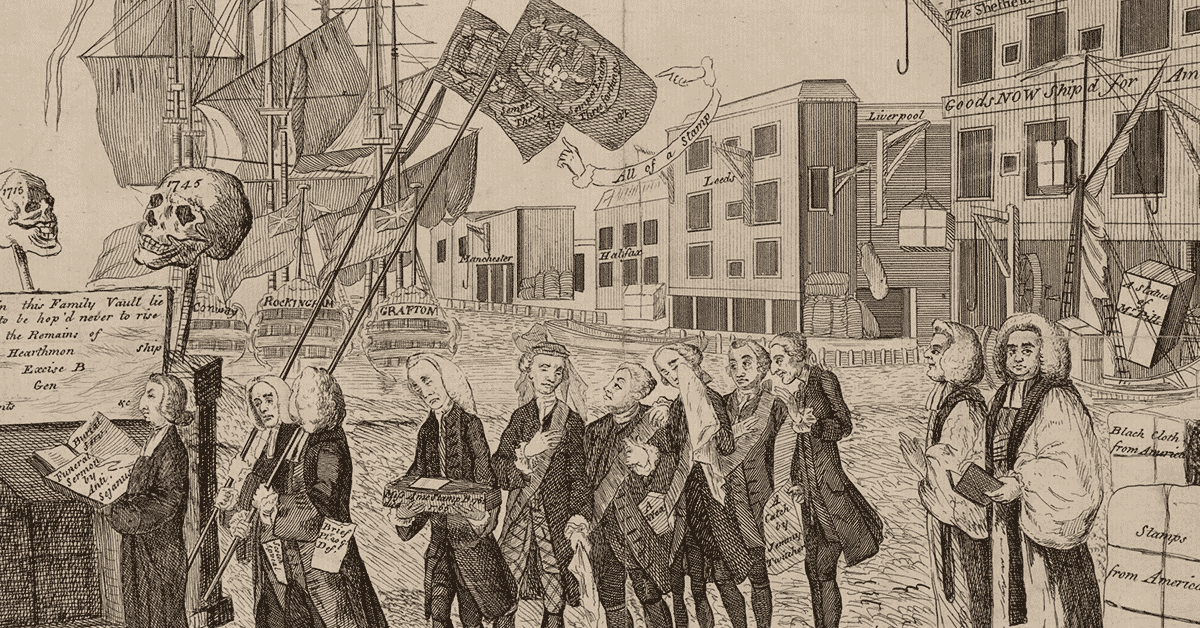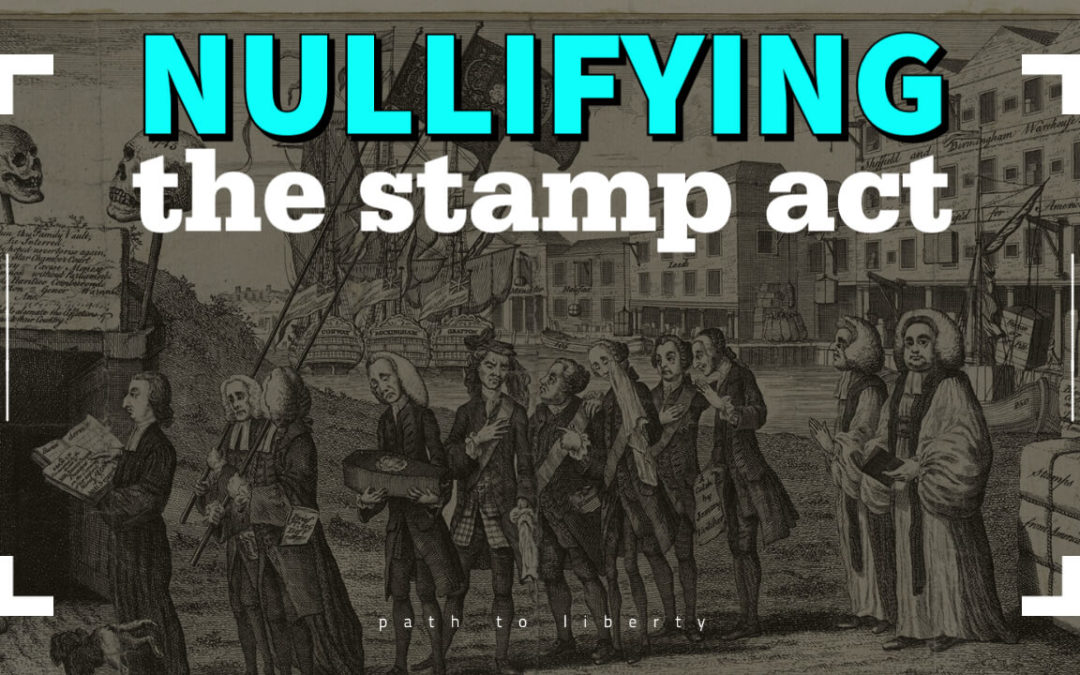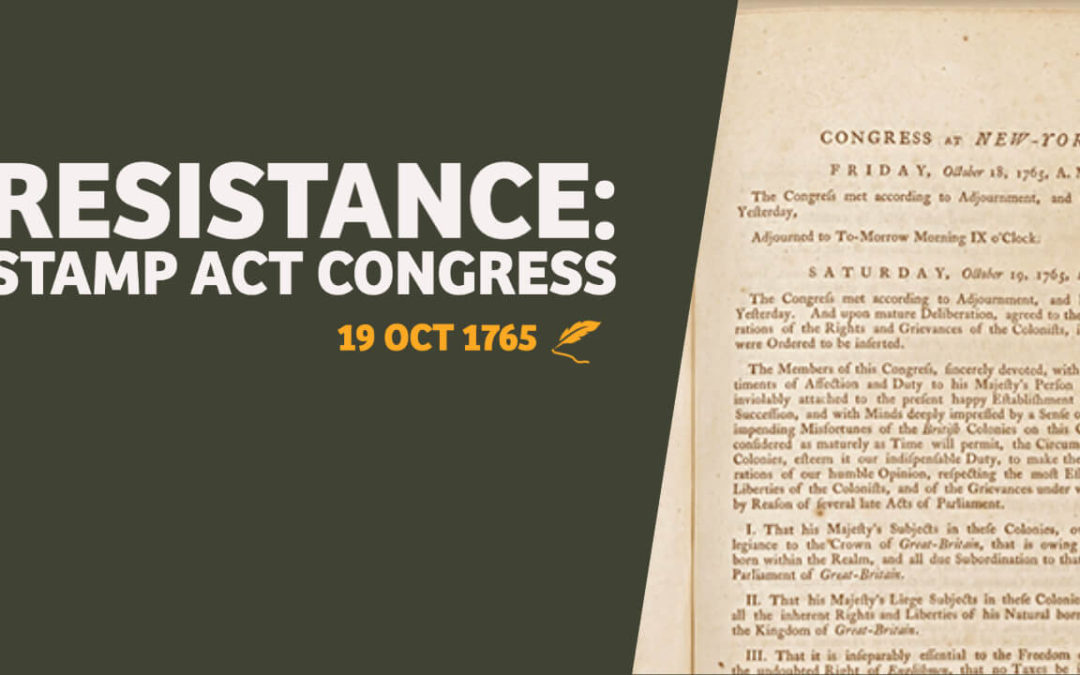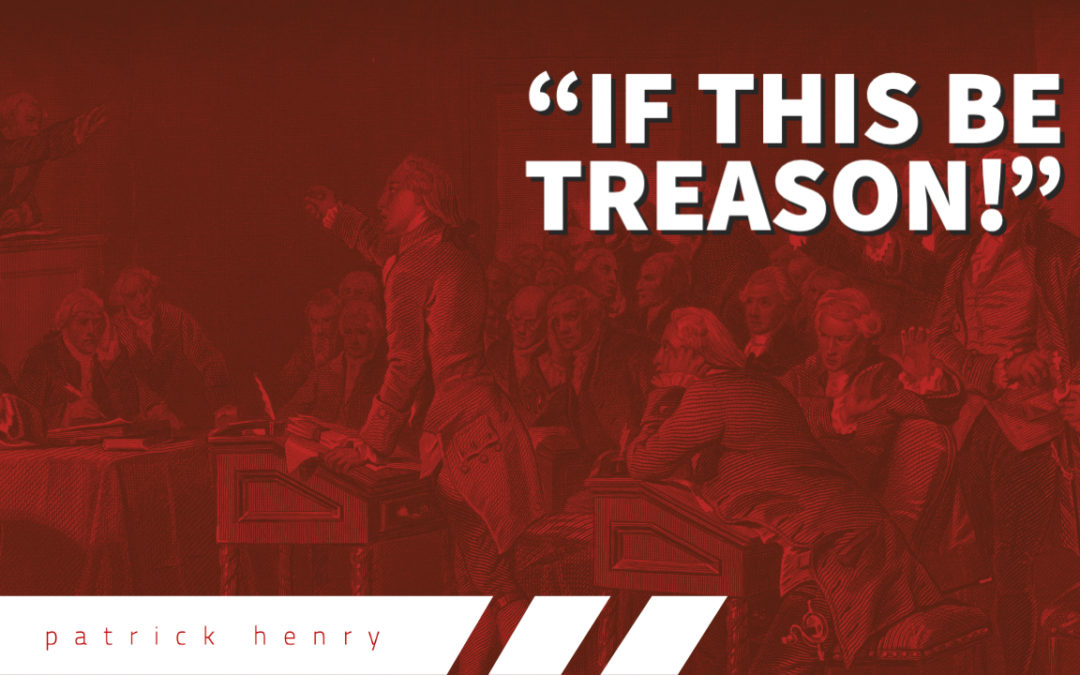
Stamp Act


The Peoples’ Nullification of the Stamp Act
A combination of protests, declarations, disobedience, local resolutions, support from merchants, and non-enforcement by sheriffs and other local officials created a climate where the Stamp Act was unenforceable. Parliament ended up repealing it even though they...
Resistance: Resolutions of the Stamp Act Congress (Oct. 19, 1765)
In what was an unprecedented display of colonial unity for the time, thirty-seven delegates from nine colonies gathered in October of 1765 in New York City for the Stamp Act Congress. On the 19th, they issued resolutions opposing taxation without representation...
Patrick Henry vs the Stamp Act
On his 29th birthday – May 29, 1765 – Patrick Henry introduced a series of resolutions against the Stamp Act. In a speech the following day to encourage passage of the resolutions, Henry made his famous “If this be treason…” statement. A...
Today in History: Stamp Act Repealed
Today in 1766, the British Parliament repealed the Stamp Act after months of protest from the colonies and British merchants. On the same day, it also passed the Declaratory Act, a pronouncement that Parliament’s authority in North America was supreme and binding upon...
